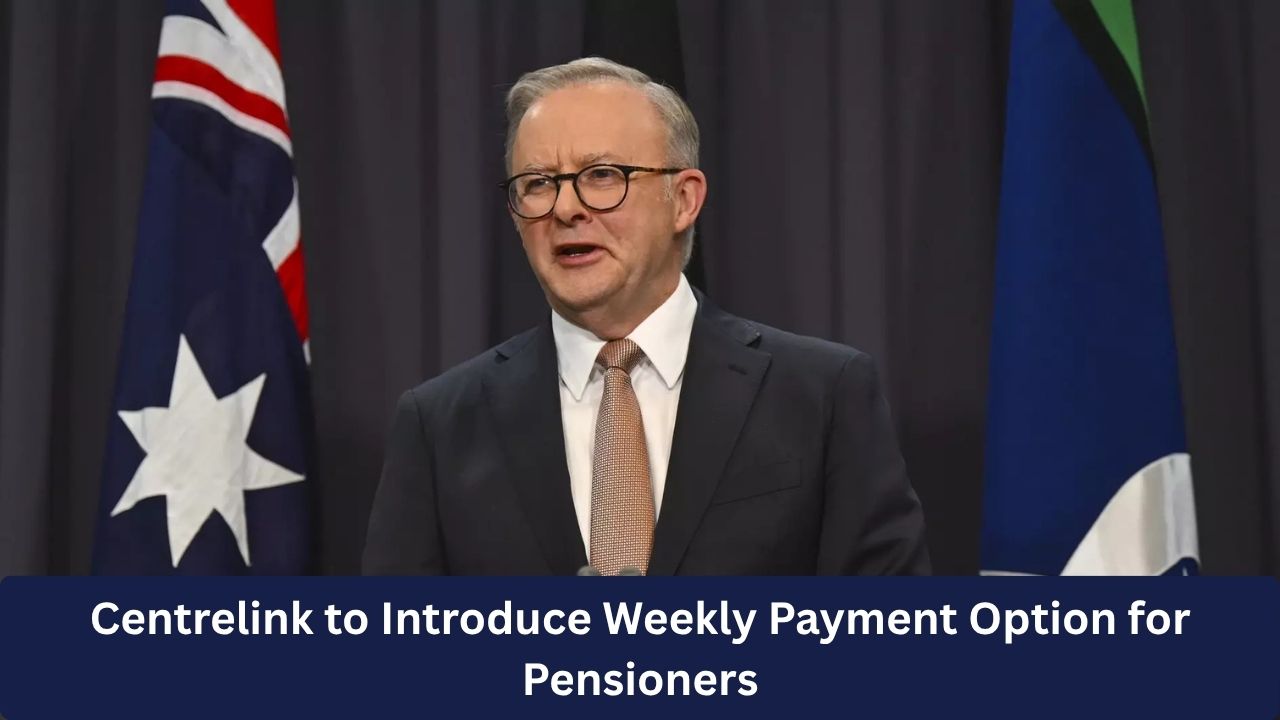An crucial information has been given to older Australians that may significantly impact their daily life. Pensioners will soon have the choice to receive their Age Pension on a weekly basis rather than the customary fortnightly timetable, according to Centerlink. On paper, this move might seem insignificant, but it could greatly ease the lives of thousands of seniors who are on a tight budget.
Instead of waiting for a larger payout every two weeks, retirees will get smaller, more regular installments thanks to weekly payments. This might be a lifesaver for those who find it difficult to stretch their budget until the next deposit. It can assist them in more effectively handling bills, groceries, medications, and other necessities.
The government claims that this reform is intended to provide retirees greater freedom, flexibility, and financial breathing room as living expenses continue to climb throughout Australia. Let’s examine what this entails, how it will operate, the rationale for its introduction, and the ways in which retirees might profit from it.
Quick Info
Program: Weekly Pension Payment Option
Who’s Eligible: Age Pensioners and certain Centrelink pension recipients
Type of Change: New payment frequency option (voluntary)
Purpose: Help pensioners manage weekly expenses more easily
Start Time: Expected rollout in late 2025 or early 2026
Payment Style: Same total amount, spread across weekly deposits
How to Access: MyGov, phone call, or Centrelink office
Impact: More regular cash flow for budgeting
Why Weekly Payments Are Being Introduced
Pensioners and community organizations have been requesting more flexible payment alternatives from Centrelink for years. Every two weeks, a large number of elderly Australians receive their pension. Some people find that approach works, but others struggle to make ends meet for two whole weeks.
Payment cycles and bills don’t always coincide. Pensioners may run out of money before their next deposit arrives due to an unexpected cost, a broken appliance, an unexpected doctor’s visit, or a medication refill.
The government determined it was time to reconsider how pension payments are made because living expenditures are increasing in nearly every sector, including groceries, rent, power, insurance, and medical costs.
The Growing Financial Pressure on Pensioners
1. The Cost of Groceries Is Higher
Commonplace goods like meat, bread, milk, and vegetables are now more expensive than they were merely a year ago.
2. Health Expenses Continue to Increase
Prescription medications, dental examinations, doctor visits, and specialist consultations may all be costly.
3. Higher Utility Bills
Bills for gas, electricity, water, and phones are still rising, particularly during hot seasons.
4. Not Everyone Can Afford Rent
Pensioners who reside in private rentals have been severely impacted by rent rises.
5. Unexpected Costs Increase Stress
A leaky tap, a broken furnace, or an essential home repair might be too expensive.
How the Weekly Payment Option Will Work
This new plan’s concept is straightforward: retirees will still get the same amount of money, but they will have the option to receive it in smaller increments each week rather than all at once every two weeks.
1. Different Timing, Same Money
The pension amount has not increased or decreased. It’s just dispersed among more regular installments.
2. Not Required—Optional
Pensioners are free to continue receiving their regular fortnightly payouts. Only individuals who wish to make deposits more often are eligible for this adjustment.
3. Simple to Change
The following methods will allow pensioners to transition to weekly payments:
- MyGov
- Phone assistance
- A visit to a Centrelink service facility
4. Bank Account Direct Deposit
Like existing pension payments, the weekly payment will be sent directly to their bank account.
5. Verifications and Evaluations
If pensioners attempt weekly payments and find they don’t work for them, they will probably have the choice to return to fortnightly payments.
Why This Change Helps Older Australians
Weekly payments may sound like a small change, but for many retirees on fixed incomes, it could make a big difference.
1. Simpler Budgeting
Pensioners will get money each week rather than all at once during a 14-day period. Spending is more evenly distributed as a result.
2. Assists with Weekly Food Purchases
Having a weekly income makes it easier to control grocery spending because most individuals buy food on a weekly basis.
3. Improved Cash Flow
There will be fewer days spent trying to stretch the final few dollars before the next deposit if payments are made more often.
4. Lessens Stress About Money
Particularly for people living alone, knowing that a payment is on the way each week can provide a sense of security.
5. Assists People in Need of Medical Care
Many elderly people require continuing care or medicines. They can better align their financial flow with their medical costs by making weekly payments.
When Will Weekly Payments Begin?
The option will be introduced gradually by the government. The majority of publications indicate that weekly payments will start, albeit the precise date may differ:
- late 2025 or
- Early in 2026
Centerlink will be able to test the system, find any problems, and ensure that pensioners know how to change the frequency of their payments thanks to this phased implementation.
It is anticipated that Centerlink will explain the new choice via letters, emails, and MyGov alerts during this period.









Leave a Reply